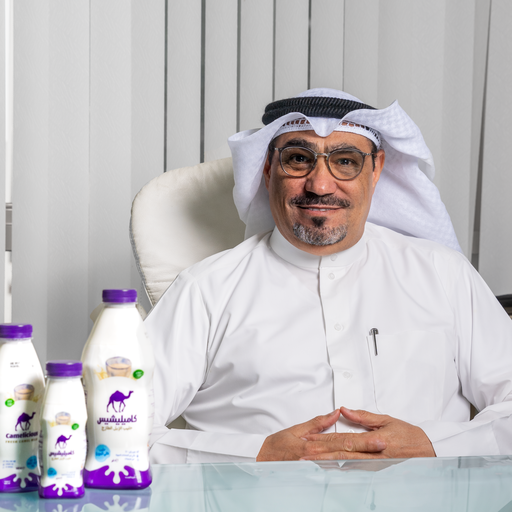Sustainability in the Dairy Farming Industry: Reducing Emissions and Embracing Responsible Practices
Dairy farms possess untapped potential to enhance global sustainability efforts and contribute significantly to a greener planet
By: Mutasher A. Latef Albadry, CEO of Emirates Industry for Camel Milk and Products (Camelicious)

The dairy farming industry, which consists of producing milk and other dairy products in large, dedicated farms, has long been known for emitting a considerable amount of harmful emissions. Recognising the scale of their operations, dairy farms possess a significant opportunity to create a positive impact on the environment by embracing modern sustainability practices. Renewable energy, waste management, and animal welfare are among the main areas where the industry can make substantial strides towards greener operations.
Leveraging Solar Power in the Desert
Having a dairy farm in the desert under the sun is a reality all milk producers in the GCC region have to deal with. Creating large farms requires utilising vast areas and a substantial amount of energy, especially to keep the business running around the clock. One possible means of taking a positive from this difficult situation is by installing solar panels, harnessing the power of the sun to create a reliable source of green energy.
While deploying advanced solar systems may seem like an unattractive solution due to its high installation costs, the long-term benefits outweigh the initial investment to no end. The unique geographical nature of the desert in most of the Arabian Peninsula, with its consistent sunshine and flat terrain, makes it an ideal environment for installing solar panels that can efficiently produce electricity throughout the day. At Camelicious we have taken this approach and it has yielded remarkably positive results, having installed an advanced solar park on our farm, generating an impressive 3.7 megawatts of clean energy annually.
Waste to Resource: A Futuristic Approach
Innovative dairy farms are constantly looking for new ways to reduce their environmental footprint and manage waste. A business that revolves around working with a large number of animals, which produce a large amount of bio-waste, dairy producers can explore the possibility of converting manure into biochar.
Biochar is very useful for agriculture, as it can be added to the ground during the preparation phase to increase the ability of the root to absorb its necessary nutrition from the soil. This not only boosts agriculture production but also reduces the need for synthetic fertilisers, leading to lower greenhouse gas emissions. In the long term, biochar can even help in climate change mitigation, as it naturally stores carbon in the soil for extended periods, acting as a natural carbon sink.
Animal Welfare: Ethical Treatment of Livestock
The ethical treatment of livestock is a hot topic at the moment and a fundamental pillar of responsible dairy farming. Companies should always be looking to prioritise the welfare of their animals by ensuring that they have access to spacious and comfortable living conditions, ample grazing areas, and proper veterinary care. In addition to improving the quality of life for the animals, these practices can also enhance milk production and product quality.
Dairy farms should explore tailored approaches that suit the specific needs of their livestock, whether they are cows, camels, sheep, or other animals. At Camelicious, our camels are given enough time to exercise and relax throughout the day, which leads to fewer issues in the long run. After milking, the camels, along with their calves, embark on a 4km walk to promote their happiness and well-being, fostering a natural approach to intensify milk production. They also receive regular grooming sessions, maintaining their hygiene and comfort.
Animals are integral to the operations of a dairy farm, so it is essential to prioritise their welfare and treat them with adequate levels of respect. This focus on the ethical treatment of livestock reflects the brand’s values as stewards of the land and its inhabitants.
Encouraging Healthy Lifestyles
Dairy farms play a crucial role in encouraging consumers to embrace healthy choices and raise awareness of the benefits of their products. Through educational campaigns and clear nutritional information, farms can highlight the nutritional value of dairy products and promote their role in a balanced diet. Communicating with consumers can help them make informed choices about their food intake, contributing to improved health outcomes and overall wellbeing.
Every farm should fully comprehend the value of its products and give customers the right information on all the nutritional benefits they offer. By highlighting the essential nutrients found in dairy, such as calcium, protein, and vitamins, farms can showcase how these products support bone health, muscle growth, and overall vitality. Through these forward-thinking steps, dairy farms can foster a culture of health and wellness, empowering consumers to make positive lifestyle choices that align with their nutritional needs.
The dairy industry is making notable progress in adopting sustainable practices. However, in a landscape where green technologies are rapidly evolving, farms must remain proactive in implementing advanced solutions to improve their operations, be more efficient, and expand their renewable energy investments. Sustainable dairy farms pave the way for a more resilient, ethical, and environmentally friendly dairy sector for future generations.





